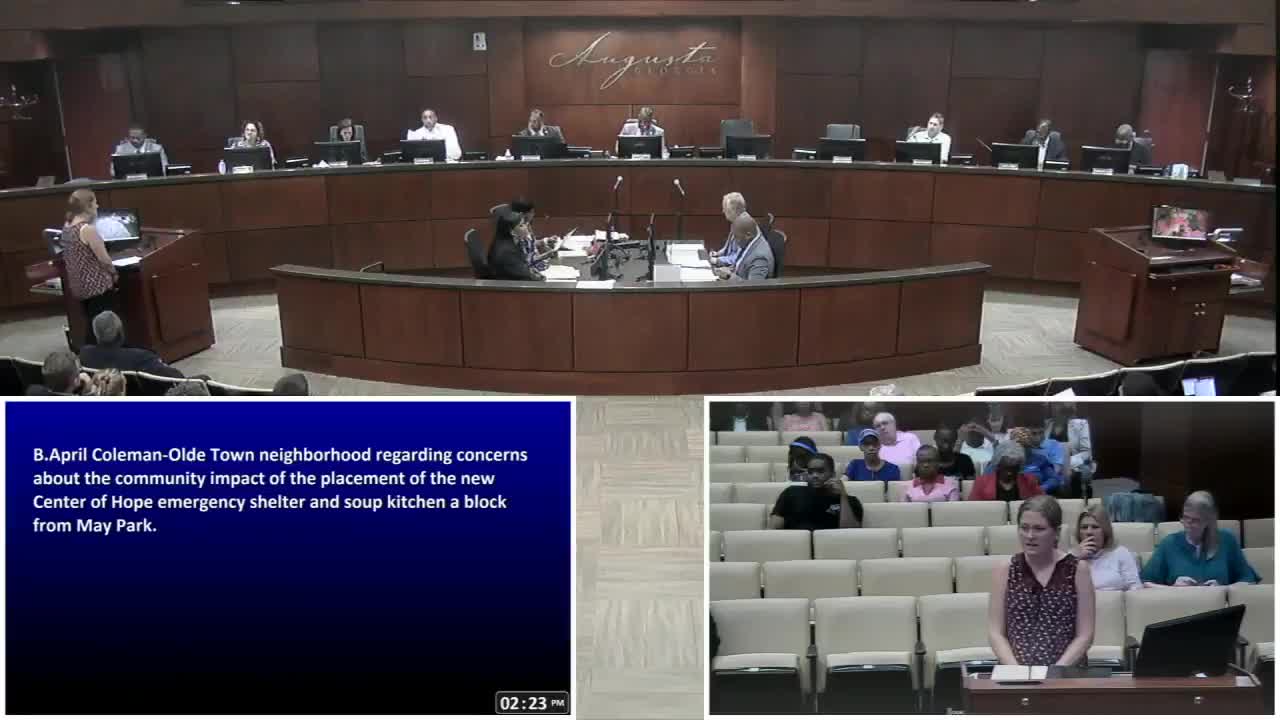Article not found
This article is no longer available. But don't worry—we've gathered other articles that discuss the same topic.
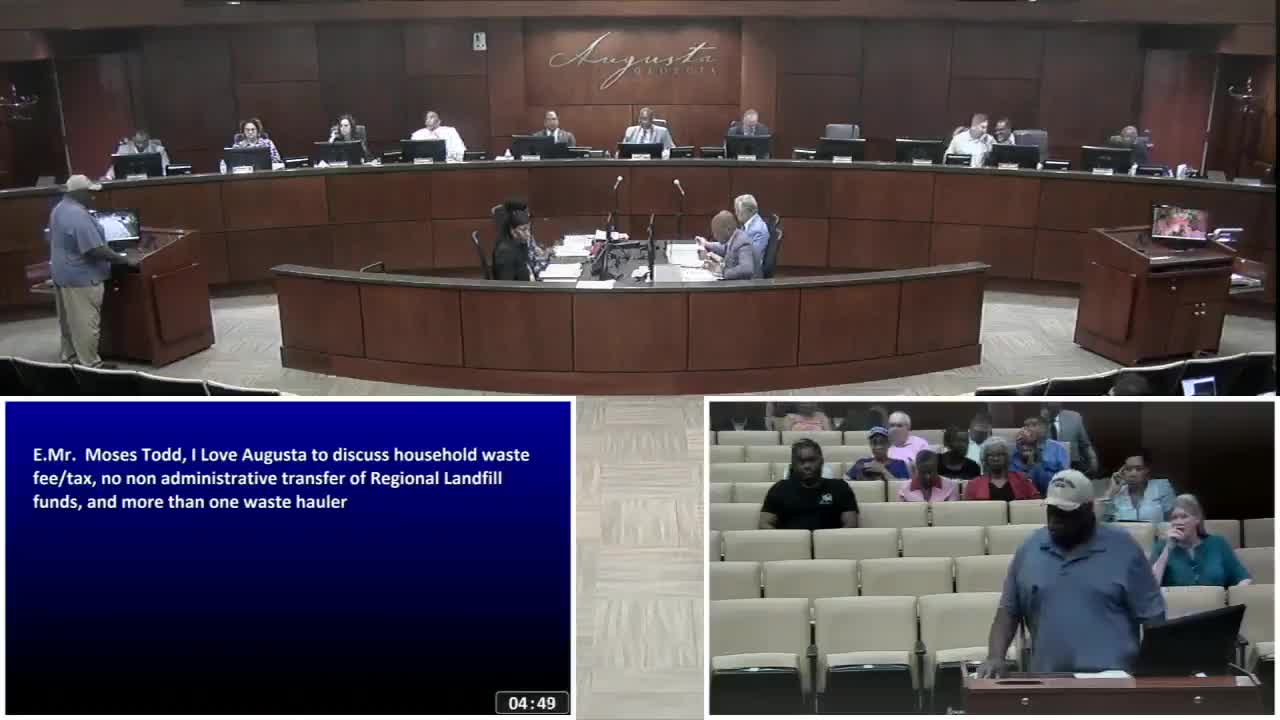
Former commissioner warns against using regional landfill fee fund for non-landfill services
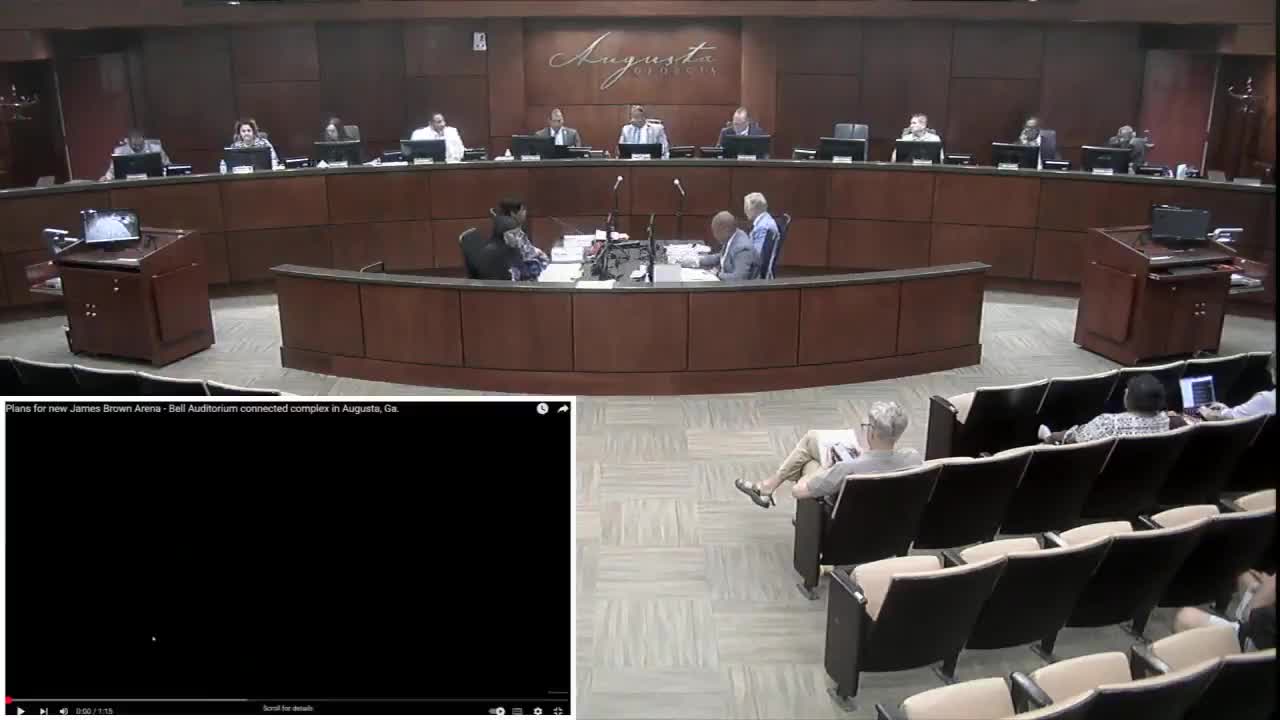
Commission approves $160,204 in reimbursement funding for two Habitat for Humanity homes in South Augusta
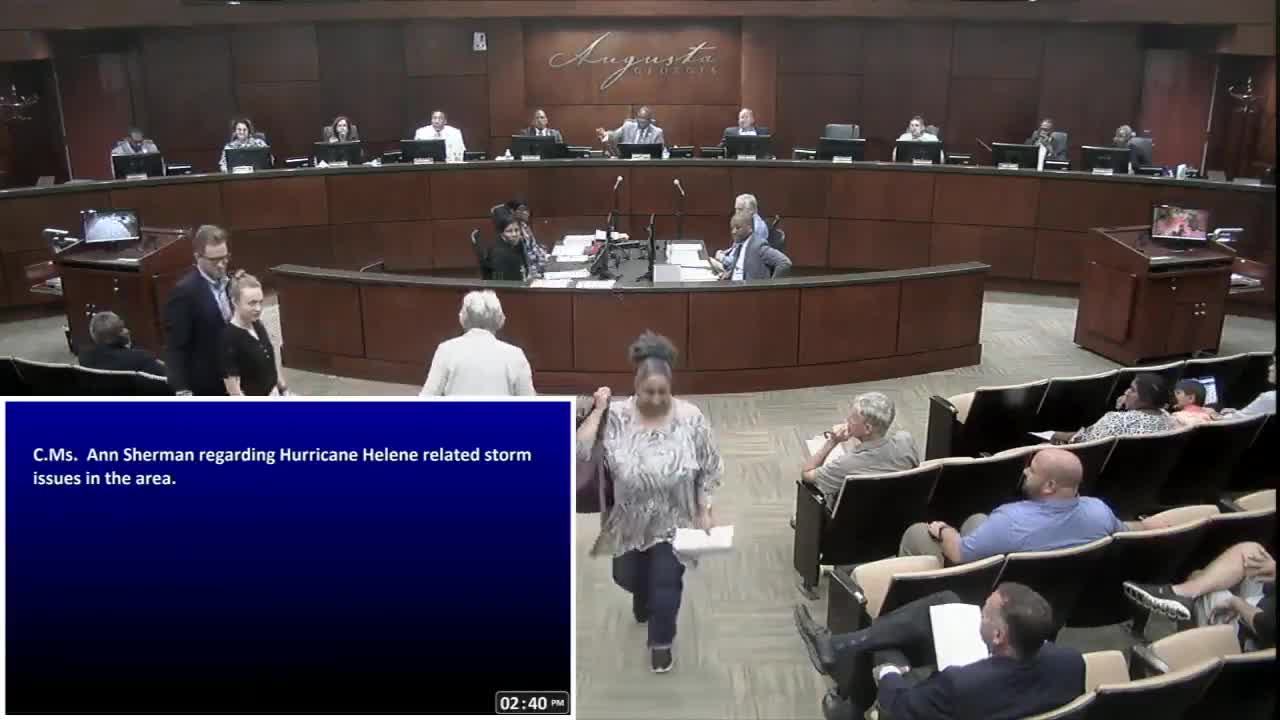
92-year-old resident urges county help to secure and repair Cottage Cemetery after storm damage
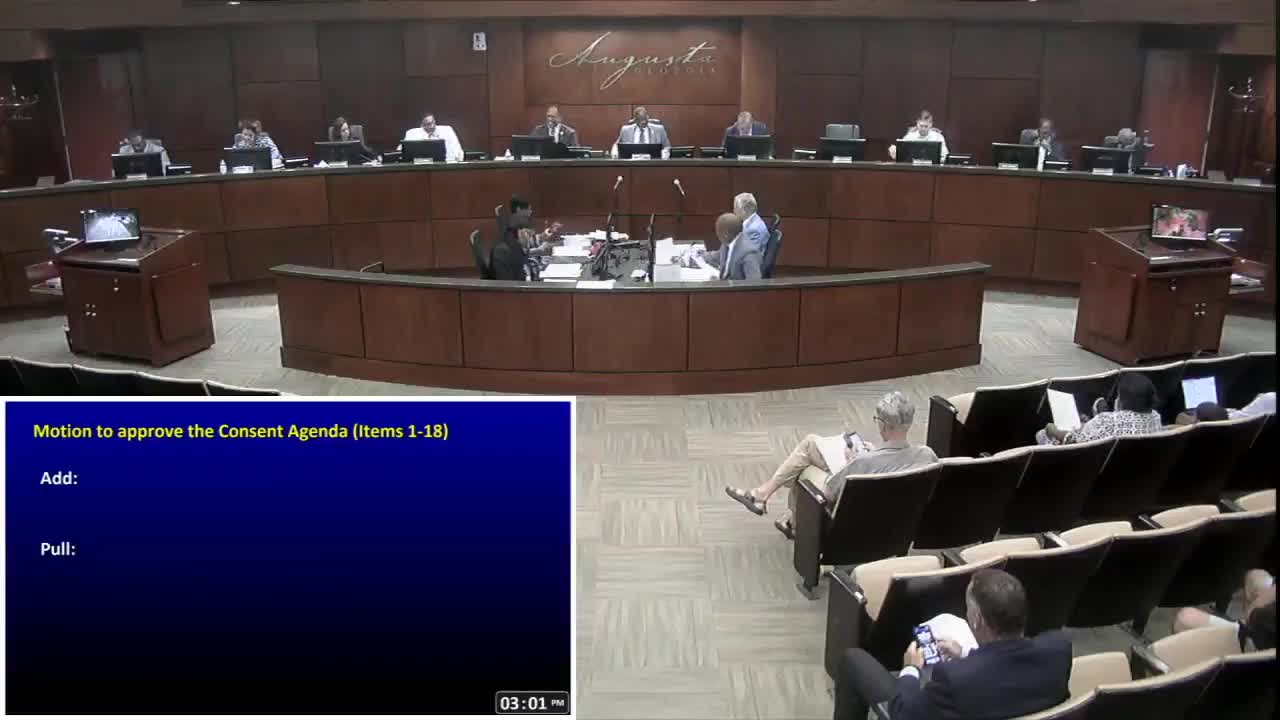
Commission approves 60-day pause on hiring to develop vegetation realignment plan
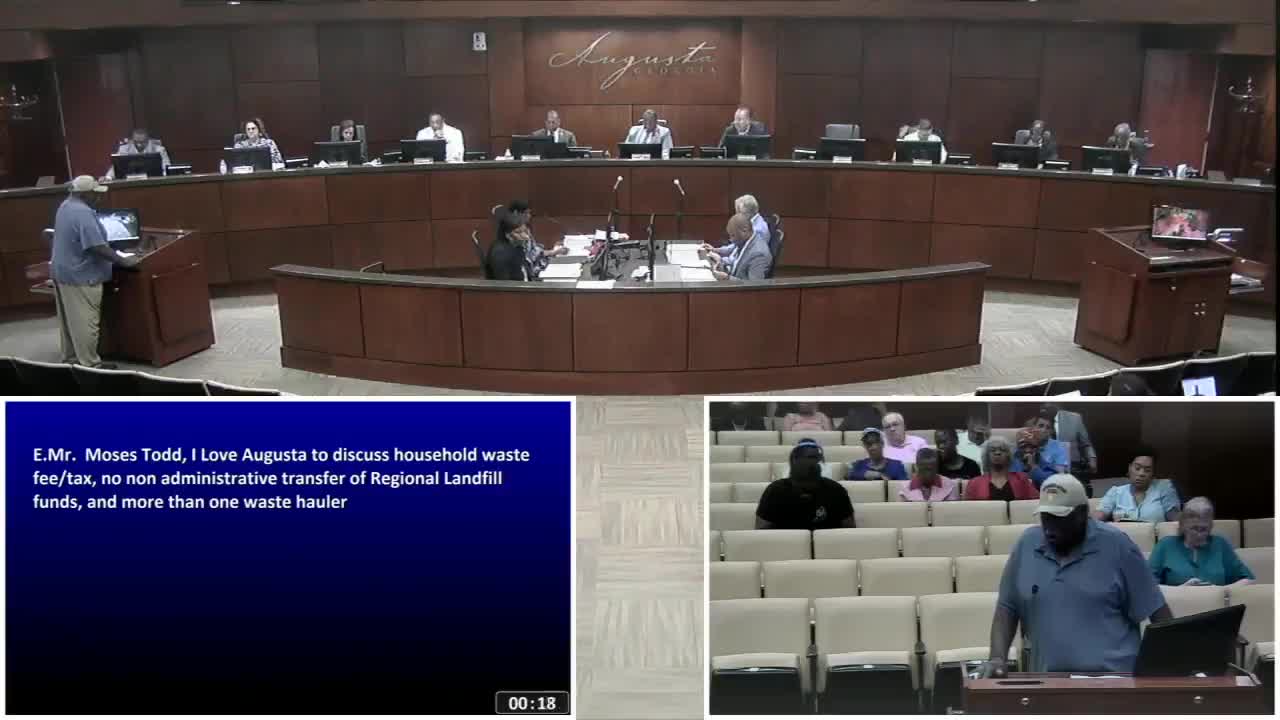
Commission awards five-year residential waste and recycling contract; commissioners press for performance safeguards
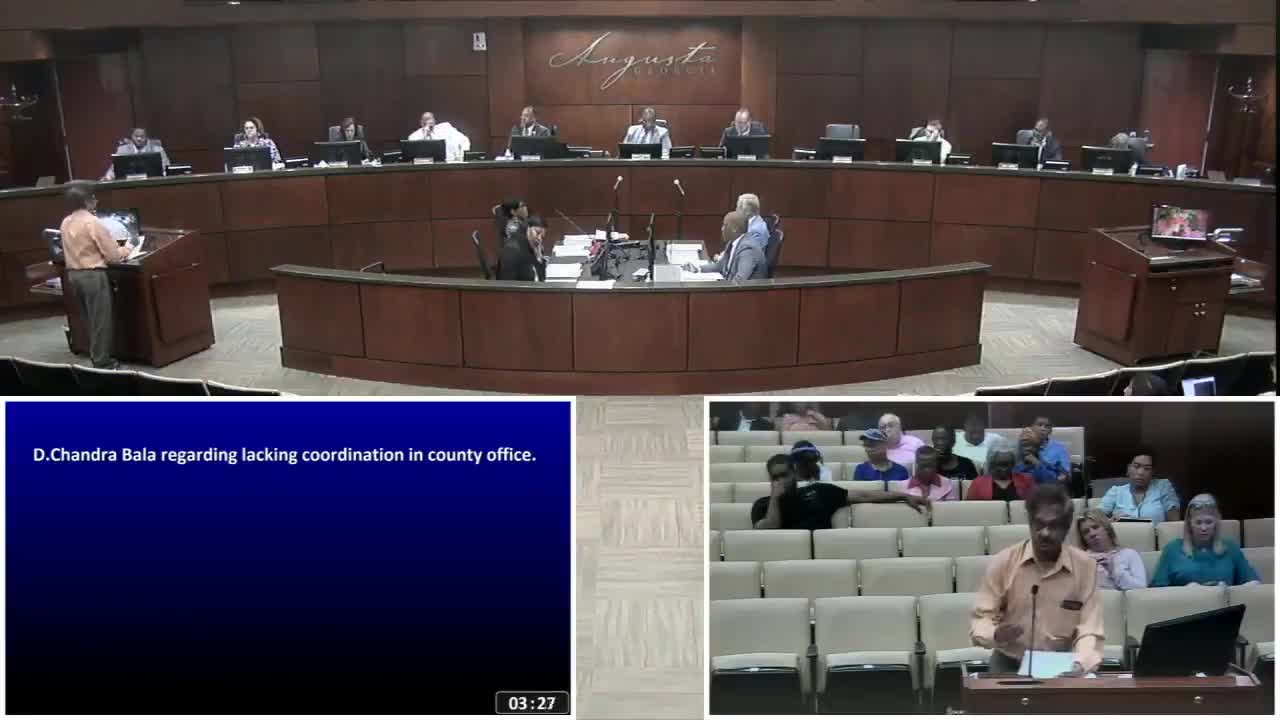
Augusta commission unanimously asks Coliseum Authority to keep 'James Brown Arena' name, seeks legal review
